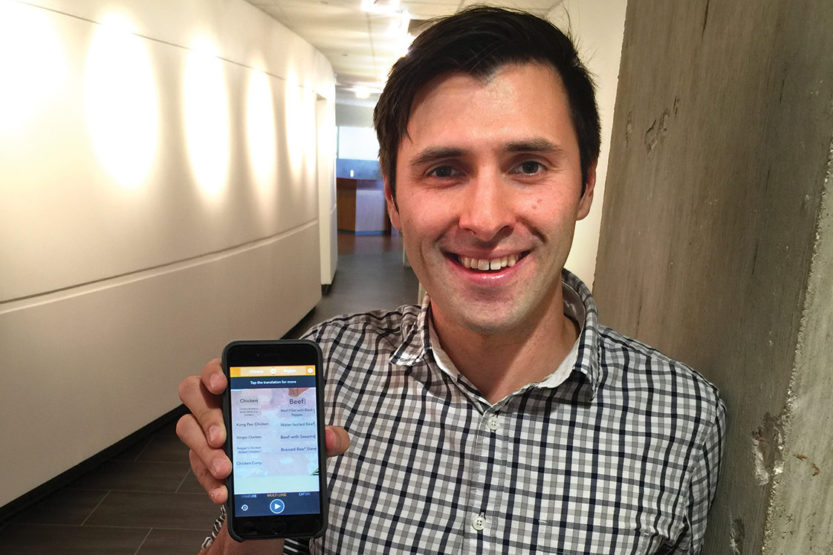Meet word finder, Illinois grad Ryan L. Rogowski
 “If you’re in China and don’t know the characters, you can’t read bus or subway signs,” says Ryan L. Rogowski, co-founder of Waygo—a mobile app that translates Chinese (and other languages) in real time. (Photo by Jen Dahlgren)
“If you’re in China and don’t know the characters, you can’t read bus or subway signs,” says Ryan L. Rogowski, co-founder of Waygo—a mobile app that translates Chinese (and other languages) in real time. (Photo by Jen Dahlgren) Few jobs demand dual degrees in electrical engineering and linguistics, so Ryan L. Rogowski, ’11 LAS, ’11 ENG, created his own. He’s co-founder and CEO of Waygo, a mobile app that translates Chinese, Japanese and Korean in real time. Since Waygo’s launch in 2010, users have made more than 7 million translations; more languages are coming soon, as are licensing deals with dictionaries and education companies.
How did you know this idea would resonate?
I worked on prototypes during college. Afterward, I moved to China to do iPhone game development and learn Mandarin. If you’re in China and don’t know the characters, you can’t read bus or subway signs. It’s scary to think about getting lost and not being able to get home. I realized this idea could help a lot of people and I should start building it.
Other apps do translation—what makes Waygo different?
Some require you to take a picture and use an internet connection, which can take a while. Waygo works offline, instantly. You can either target one small phrase or a whole page of text. Imagine pointing your phone at a menu and all the text transforms into English. That’s something that only our technology can do.
How does it work?
The app captures video feed from the camera and uses image processing to look for text in each frame. We put that line of text into a translation engine built and customized for travel language. Then we draw that translation back onto the screen and the user sees the magic.
How did you choose the name?
The Chinese name for “foreign country” is wài guó. We dropped the “i”, made it a “y” and dropped the “u”. People caught on.
What feedback do users send you?
One family emailed us—they’d planned to stay in Taiwan for a week. The family discovered Waygo two days before they were supposed to leave and felt so much more confident about exploring the region that they extended their trip for a month.
And then there was a dad trying to build a robot toy for his kid. All the instructions were in Japanese; he used Waygo to figure out how to piece it together.

